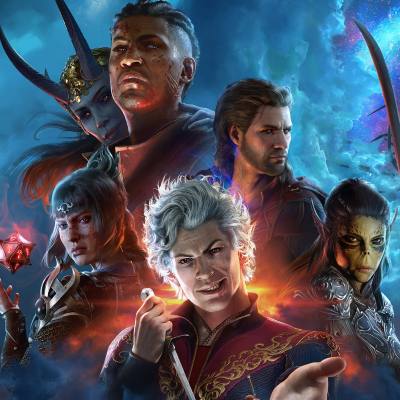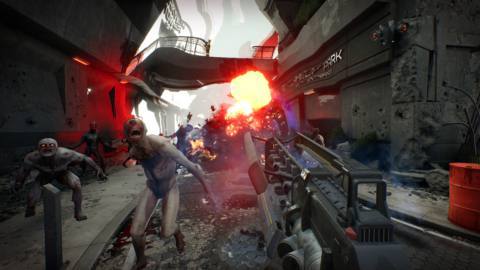Kerbal Space Program 2 players are responding to the reported closure of developer Intercept Games with what has become something of a time-honored tradition among gamers: A flood of negative reviews on Steam.
Reports of layoffs at Intercept came to light on May 1 via a Worker Adjustment and Retraining Notice (WARN) indicating that 70 people at Take-Two Interactive's office in Seattle were being put out of work. The notice indicated the action wasn't merely a staffing cut but a closure, which was effectively confirmed later in the day by a Bloomberg report saying that both Intercept Games and Roll7, the acclaimed developer of OlliOlli World and Rollerdrome, were being shuttered as part of a cost-cutting plan being implemented by Take-Two.
There's been no official announcement about the closure from Take-Two or Intercept at this point, although a statement from Take-Two indicated that the Private Division publishing label, rather than Intercept, “continues to make updates to the game.” Following the Bloomberg report, the Kerbal 2 Twitter account posted a cryptic message: “We're still hard at work on KSP2. We'll talk more when we can.”
The presumed intent of the message—essentially a request for patience and understanding as an ugly situation unfolds—does not seem to have carried through with the Kerbal community. More than 250 negative reviews have been posted to Steam since the report of the closure less than 24 hours ago, most of them warning against the purchase of the game because of the looming elimination of the development team.
Even the very few positive reviews posted over the same period are clearly leaning heavily on optimism: One expressed hope that modders will be able to carry one with development, while another said “it feels a little delusional” to believe that the game has any sort of future.

The number of new negative reviews represents a relatively tiny portion of the whole: Kerbal 2 currently has more than 18,000 user reviews on Steam, so the “mostly negative” influx hasn't really moved the needle overall.
But that rating wasn't great to start with. Fans have been frustrated with the state of the game at launch, which was plagued with bugs and missing many of the features present in the first game, and what they perceive as a plodding pace of updates since. That's resulted in just 56% positive user reviews in total, an especially remarkable figure in light of how widely beloved the original Kerbal Space Program is.
We shared similar thoughts in our own assessment of the early access launch, saying it showed great potential but has “little else on offer for anyone other than diehard kerbonauts.” Multiple updates have been implemented since then, including a big “For Science!” update that saw a spike in players and positive user reviews, but those player numbers tailed off relatively quickly, as the community has largely opted to stick with the original.
It's understandable that Kerbal fans would have doubts about the future of KSP2. The game was announced in 2019 by Star Theory Games, a new developer—the first game was created by Squad—but less than a year later was taken over by a new studio, which eventually came to be Intercept Games, founded under Take-Two's Private Division publishing label with many “key members” of the Star Theory team moving over. Intercept was meant to be “dedicated solely to the ongoing development of KSP,” Private Division said at the time, adding that bringing development in-house “allows us to provide the development team with the necessary time and resources to complete development of KSP 2 at the quality level we all want to deliver our players.”
Given that Intercept's raison d'être is (or was) Kerbal Space Program 2, axing the studio understandably raises concerns about the future of the game itself, doubts that are weighted even further by Take-Two's plan to “rationalize its pipeline,” which includes cutting 5% of its total workforce and “eliminating several projects in development.”
We'll hopefully learn more about the future of Kerbal Space Program 2 soon: Take-Two's 2024 year-end financial report and investors call (where the interesting stuff tends to happen) is scheduled for May 16.





